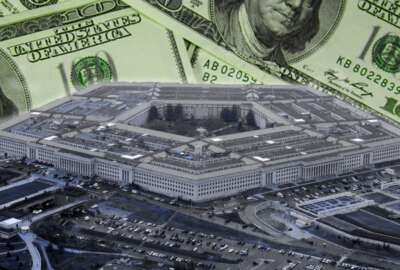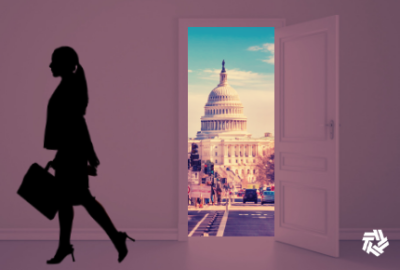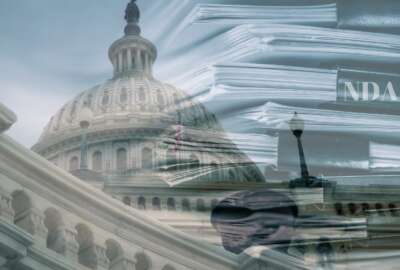
Congress will let federal employees carry over more annual leave into 2021
The 2021 National Defense Authorization Act will allow federal employees to carry over more vacation time into next year. It also corrects past legislative mistakes...
Federal employees who put off travel plans or simply didn’t have the time or flexibility to take time off this year will have a little more leeway with their unused annual leave in 2021.
The latest version of the National Defense Authorization Act includes a provision that will allow federal employees to carry over an additional 25% of their annual leave into 2021.
Conferees unveiled the details of their agreement for the 2021 NDAA, which is considered must-pass legislation, Thursday evening.
Under current statute, most federal employees can carry up to 30 days of annual leave to the following year, though some can accrue more. Any accrued leave that exceeds the statutory limit is usually lost.
Agency human capital leaders have said they’ve been encouraging their employees to take leave whenever possible throughout the year. But the ongoing pandemic has created new pressures and more work for many agencies, while others have been reluctant to take time off.
Now, Congress will allow federal employees to increase their annual accrued leave balances by up to 25% over the current limit for 2021.
The extra leave that isn’t used won’t count for the purposes of calculating an employee’s lump-sum payout upon retirement or separation.
The new annual leave policy applies to the vast majority of federal employees in the executive branch but not members of the Senior Executive Service.
The provision appears to have a broader scope for federal employees than members of Congress or the Trump administration had previously suggested.
The Office of Personnel Management fast-tracked a new policy this summer that allows certain “essential” federal employees to hold onto the annual leave they’d otherwise have to forfeit at the end of the year. But the new policy from OPM only applies to federal employees whose service during the pandemic or future national emergencies is considered “essential,” and it allowed agencies to make those calls.
Lawmakers made several attempts of their own to allow federal employees to carry over more leave due to the pandemic.
An amendment from Rep. Jennifer Wexton (D-Va.), which made it into the House version of the annual defense policy bill, called for a more generous leave carryover policy for essential federal workers during the pandemic. NDAA conferees ultimately used her amendment as the starting point for the final defense policy bill agreement.
The Federal Worker Leave Fairness Act, which Rep. Derek Kilmer (D-Wash.) and Sen. Mazie Hirono (D-Hawaii) introduced this fall, also called for any federal employee to hold on to annual leave they’d otherwise have to forfeit during the pandemic.
The provision in the final NDAA agreement doesn’t mention the coronavirus pandemic. It simply sets a new, temporary cap on the amount of annual leave federal employees can carry over into 2021.
The National Treasury Employees Union called the new annual leave carryover policy in the final NDAA a “welcome development.”
The NDAA still has some ways to go before federal employees can begin recalculating their leave balances.
Both the House and Senate must still pass the bill, and President Donald Trump must sign it. Trump has threatened to veto the bill because it doesn’t change a law designed to protect the liability of social media companies — but it does require certain military bases named after Confederate generals to rename themselves over a three-year period.
If and when the bill is signed into law, the Office of Personnel Management must issue new guidance describing the details of the new annual leave carryover policy for 2021.
Congress corrects federal paid parental leave program
Nearly a year after Congress passed paid parental leave benefits into law for federal employees, lawmakers are poised to correct a few mistakes with the original bill and expand coverage to the entire workforce.
The final NDAA agreement includes a provision that will ensure paid parental leave coverage to workers at the Federal Aviation Administration, non-screener personnel at the Transportation Security Administration and health professionals at the Veterans Health Administration, as well as any other Title 38 employees.
Congressional employees, Article I judges, presidential appointees and employees of the District of Columbia courts and Public Defender Service are also covered in the final NDAA provisions.
The provision would go in effect as if they were immediately enacted after the passage of last year’s NDAA, meaning that an FAA or VHA employee expecting a new child on or after Oct. 1 should be entitled to receive paid parental leave benefits.
The president had signed FEPLA into law with much fanfare at the end of 2019. The law, which was highly lauded as a “historic” achievement, provides up to 12 weeks of paid parental leave to federal employees.
But in the rush to finish the annual defense policy bill before the year ended, Congress inadvertently left out several groups of federal employees.
The mistake meant that some federal employees couldn’t immediately take advantage of the new paid parental leave program when it went into effect on Oct. 1.
Other notable provisions for civilian feds
The final NDAA agreement also included the entirety of the Federal Employee Anti-Discrimination Act, named for the late Oversight and Reform Committee Chairman Elijah Cummings (D-Md.).
Cummings introduced the legislation before he died last year. He had been working on a version of this bill for several years.
The anti-discrimination act requires agencies to establish an equal employment opportunity program separate from their human resources or general counsel offices, giving EEO leaders direct access to their agency heads.
Agencies would have more requirements to report on discrimination and retaliation when they happen. Agencies, for example, must establish a system for tracking discrimination complaints, as well as a mechanism to publish findings of discrimination or retaliation on their websites.
In addition, the anti-discrimination bill gives new responsibilities to the Office of Special Counsel, which must accept and review matters where an agency issues an appellate decision involving issues of discrimination or retaliation against a federal employee.
Finally, the bill prohibits the use of non-disclosure agreements that attempt to prevent federal employees from reporting waste, fraud, abuse or retaliation.
The final NDAA agreement doesn’t include a provision designed to protect collective bargaining rights for Defense Department employees.
Specifically, the provision would have prevented DoD from acting on a White House memo, which gave the defense secretary authority to exclude certain employees from collective bargaining. The memo earned criticism from a bipartisan group of senators, but it’s not clear the Pentagon actually used the authority it received.
Copyright © 2025 Federal News Network. All rights reserved. This website is not intended for users located within the European Economic Area.
Nicole Ogrysko is a reporter for Federal News Network focusing on the federal workforce and federal pay and benefits.
Follow @nogryskoWFED





